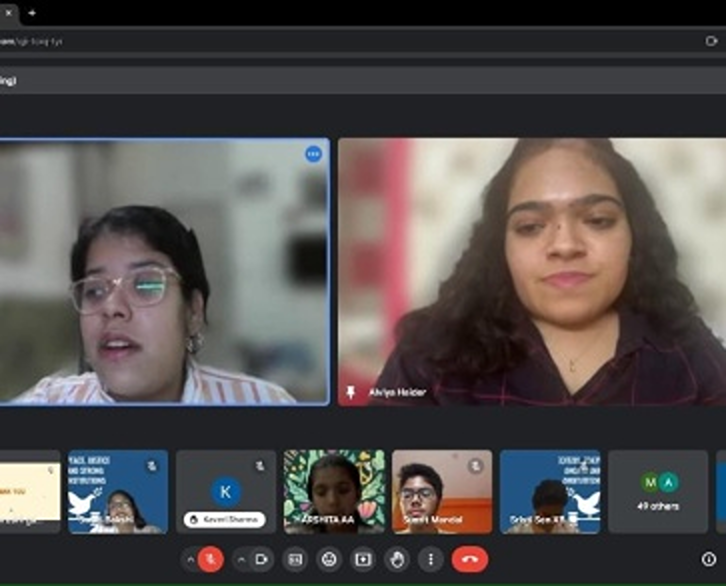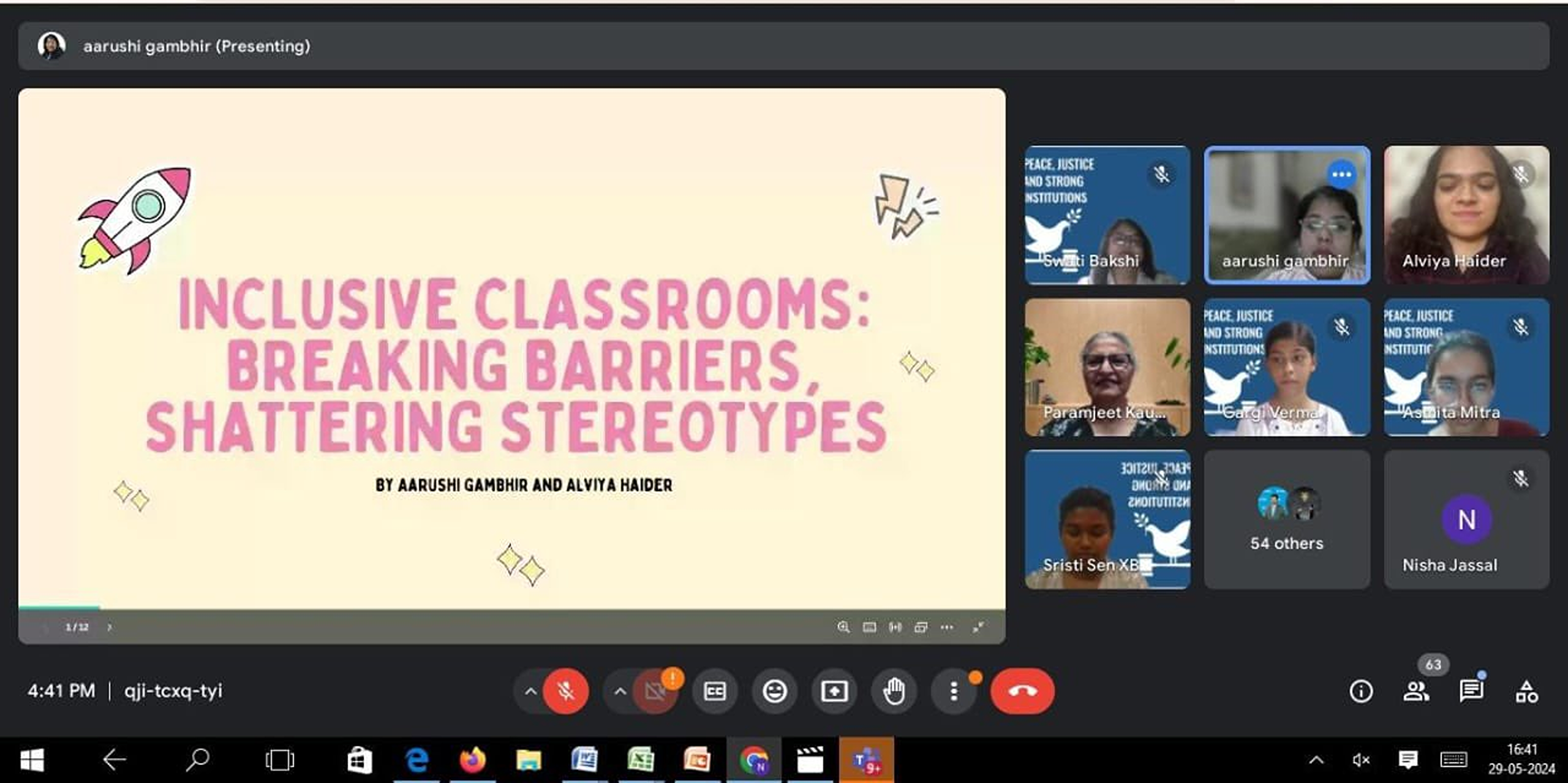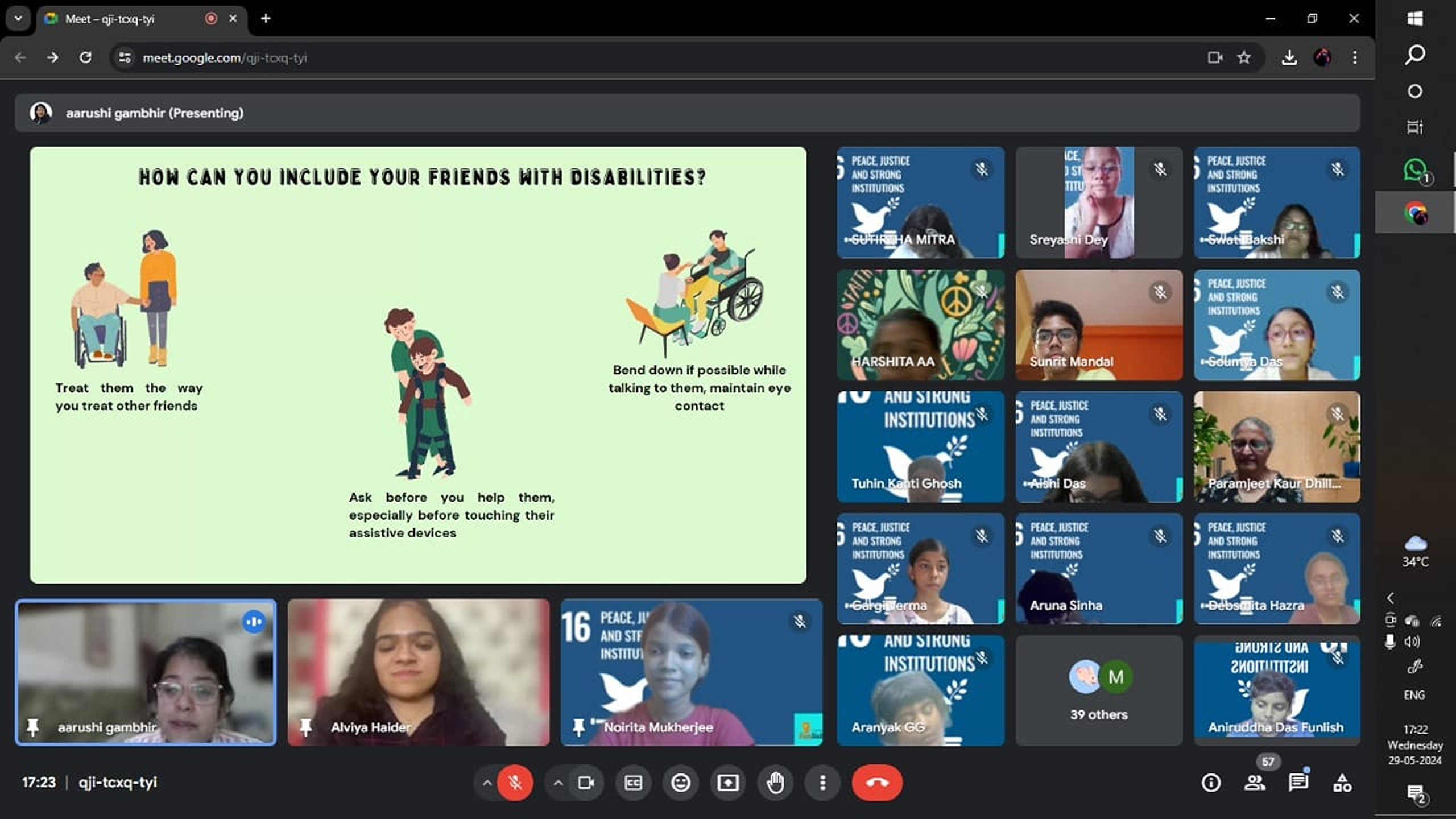India: UNODC’s Youth Advocates champion disability rights, inclusive classrooms under RiseUp4Peace Initiative

New Delhi, India/07 June 2024: "As a person with disability, I have experienced firsthand the impact discrimination has on a child's mental health. With UNODC, I am committed to using education as a medium to nurture a generation of students who realize every disabled person's dream of a truly inclusive classroom,” says Aarushi Gambhir, as she shares her life journey with a group of educators from India, highlighting the challenges she faced as a student.
As youth champions under UNODC’s RiseUp4peace initiative, Aarushi and her friend Alviya Haider, are working tirelessly to sensitise educators and peers on the importance of inclusive classrooms and disability rights.
The RiseUp4Peace initiative builds capacities of educators and engages students with a positive framework of education and action on important social themes—including anti-discrimination and inclusion.
“Empowered teachers create inclusive and open classrooms, which, in turn, helps students to develop critical thinking skills, engage constructively, and develop a sense of purpose,” says Samarth Pathak, UNODC’s Communications Officer for South Asia.

An inclusive environment helps students feel valued and capable of achieving their full potential. For students with disabilities, being in an inclusive classroom can greatly improve their mental and emotional well-being. This sense of belonging allows them to thrive both academically and socially.
To make classrooms more disabled-friendly and inclusive, teachers can adopt several strategies. These include utilizing differentiated instruction to cater to diverse learning needs, ensuring physical accessibility within the school premises, and using assistive technologies to support students with disabilities.
Additionally, fostering a culture of empathy and respect among students is crucial.
However, empowering students on such themes requires a multifaceted approach. Educational programs that incorporate real-life experiences, such as those shared by Aarushi and Alviya, can be incredibly impactful.
Interactive activities, such as role-playing and empathy exercises, help students understand the challenges faced by their peers with disabilities and the importance of inclusivity.

UNODC's RiseUp4Peace initiative is playing a crucial role in this empowerment process. By building their capacities and equipping them with skills and knowledge, the initiative enables educators to teach important values of equality, fairness, and justice. Discussions within the RiseUp4Peace initiative emphasize cross-learning and the exchange of innovative ideas.
“Such trainings are essential because they bridge the gap between theoretical knowledge and practical application. They provide us with innovative methods to engage students on complex themes like the rule of law and ethical behavior, ensuring these important concepts are understood and valued by young minds,” emphasises Swati Bakshi Purkayastha, Founder of the Funlish Academy in West Bengal, one of the educators participating in such capacity-boosting dialogues.
Alviya, who brings her lived experiences into the conversations, says, “We often talk about inclusion and diversity but seldom include people with disabilities like myself in the discussion. With RiseUp4Peace, I am glad to contribute constructively as an equal partner by sensitizing educators and students with my lived experiences.”
Join the RiseUp4Peace initiative: t.ly/lh9T7